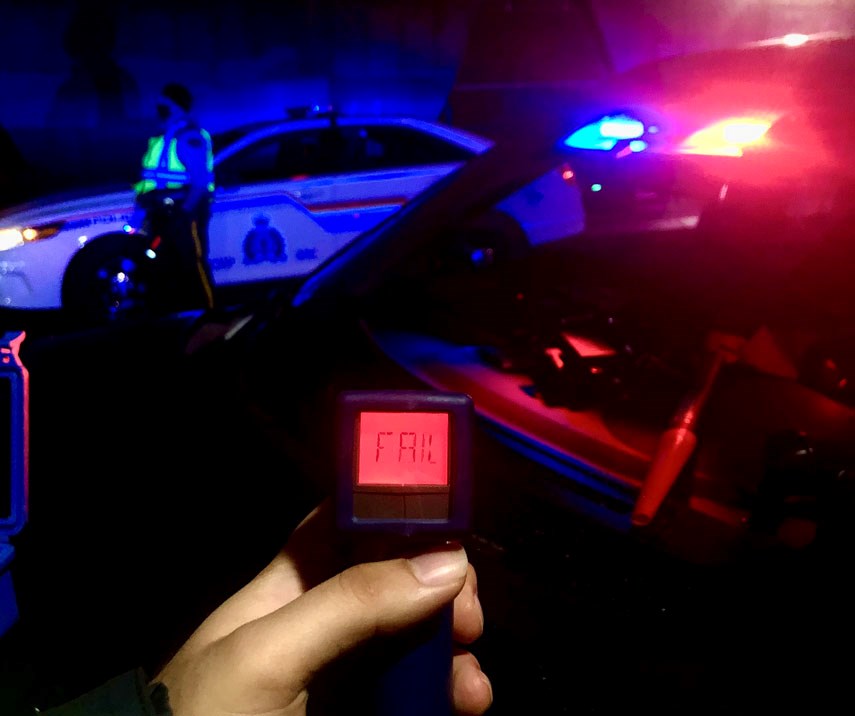A North Vancouver man has had his truck impounded for impaired driving and received a stern talking-to for violating COVID-19 public health orders.
North Vancouver RCMP members conducted a roadblock Tuesday night finding at least one driver who blew a “fail” on the breathalyzer.
In a case of “recklessness compounded by more recklessness,” the man told police he’d been drinking at a friend’s house in another city, contrary to the current orders from Dr. Bonnie Henry not to be socializing with anyone outside our immediate households.
"It's bad enough that someone would drink and drive, which obviously risks the safety of other people on the road. It's that much worse when the person does it in a way that increases the risk of spreading COVID-19," said Sgt. Peter DeVries, North Vancouver RCMP spokesman.
Out the door, an impaired driving charge can cost upwards of $5,000 in fines, fees and charges on top of having your licence suspended, DeVries said.
But the man won’t be facing any legal sanction for the public health infraction. DeVries said. Fines are typically issued when a person is caught in the act rather than after the fact.
“Our first priority is education,” he said. “To make sure people are aware, and they understand the importance of following the provincial health orders.”
Repeat offenders or particularly flagrant cases of flouting public health orders are more likely to face enforcement, DeVries added.
“We deal with complaints if we receive them. We simply don't have the capacity to be the medical health police at this point,” he said.
DeVries said the pandemic won’t do anything to dissuade police from targeting impaired driving.
"Our officers are still able to take the steps necessary to conduct impaired driving investigations even while observing COVID-19 safety precautions," he said. "We're used to it now. We're not stopping. We're not slowing down."



